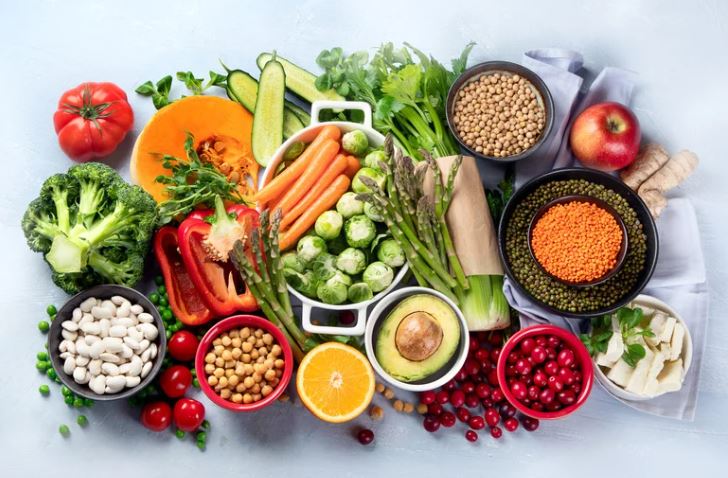ICMR Releases New Dietary Guidelines
In response to the rising health issues related to poor dietary habits in India, the Indian Council of Medical Research (ICMR) unveiled a comprehensive set of dietary recommendations on May 9, 2024. These guidelines are designed to address the alarming statistic that 56.4% of India’s disease burden is due to unhealthy eating practices.
Key Recommendations
The 148-page report produced by the National Institute of Nutrition (NIN), which is a part of ICMR, categorically emphasizes the reduction in intake of sugars, salts, and unhealthy fats. There are total 17 guidelines, each briefed here:
- Balanced Diet: Consume a nutritionally adequate diet by choosing foods wisely from a variety of food groups to ensure balanced nutrition.
- Pregnancy and Lactation: Pregnant and lactating women require additional nutritious food and care to support the health of both mother and child.
- Breastfeeding: Exclusively breastfeed infants for the first six months, then continue breastfeeding along with complementary foods until two years of age or beyond.
- Complementary Feeding: Introduce homemade, semi-solid complementary foods to infants after six months of age. These foods are economical, easy to prepare, safe, and healthy.
- Child and Adolescent Nutrition: Ensure children above two years and adolescents consume balanced diets to support optimal growth, development, and immune function, both in health and illness.
- Vegetables and Legumes: Eat plenty of vegetables, especially green leafy varieties, to obtain essential vitamins, minerals, and protect against micronutrient deficiencies and various diseases.
- Healthy Fats: Use oils and fats in moderation. Choose a variety of oil seeds, nuts, and whole grains to meet daily requirements of fats and essential fatty acids. Limit use of refined or extracted oils.
- Protein Quality: Obtain high-quality proteins and essential amino acids from a variety of sources. Avoid protein supplements for building muscle mass.
- Obesity Prevention: Adopt a healthy lifestyle to prevent abdominal obesity, overweight, and overall obesity, as excess fat is associated with increased risk of lifestyle diseases.
- Physical Activity: Be physically active and exercise regularly to maintain physical and mental fitness and promote good health.
- Salt Intake: Restrict salt (sodium chloride) intake, as excessive consumption may lead to hypertension, heart disease, and stroke.
- Food Safety: Consume safe and clean foods to avoid food-borne illnesses, chronic diseases, and malnutrition.
- Cooking Methods: Use appropriate pre-cooking and cooking methods to ensure healthy food preparation.
- Hydration: Drink plenty of water to maintain good health and hydration.
- Ultra-Processed Foods: Minimize consumption of ultra-processed foods high in fat, sugar, and salt, as regular intake increases the risk of non-communicable diseases.
- Elderly Nutrition: Include nutrient-rich foods in the diets of elderly individuals, along with adequate physical activity, to support health and wellness.
- Food Labels: Read food labels on packaged products to assess nutritional quality, safety, and make informed choices about ingredients, contents, and shelf life.
Physical Activity and Lifestyle Changes
One of the pivotal areas of the new guidelines is the encouragement of physical activity alongside dietary control to combat non-communicable diseases like coronary heart disease, hypertension, and type 2 diabetes. Regular exercise in conjunction with a balanced diet is highlighted as a preventive tool to avert a significant number of premature deaths.
Food Safety and Quality
The guidelines further address the importance of food safety, opting for minimally processed foods, and understanding food labels. These additions aim to gear the Indian population towards making informed food choices that are beneficial in the long term.
Month: Current Affairs - May, 2024
Category: Economy & Banking Current Affairs








